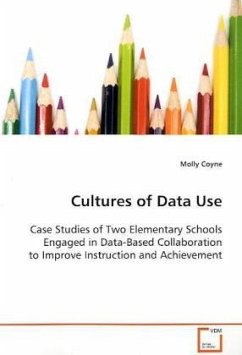We hear about schools that have successfully used
data to make gains in student achievement. What we
often don t hear about are the nuances of the work.
How did school leaders initiate the work? How did
they overcome the barriers? Beyond increases in
student test scores, what does data use look like
when it is working? What happens in effective data
meetings? What do teachers and leaders in these
schools talk about? How are connections made to
instruction?
Using a case study approach to examine two urban
elementary schools with increases in student
achievement that outpaced district averages, this
work describes the practices of teachers and leaders
in these schools. Retrospective interviewing allowed
for an exploration of factors that had supported the
development of successful practices. Cross-case
comparisons reveal that data use facilitated
communication, collaboration and instructional
changes. Overall, the case studies provide
descriptions of how two schools evolved from data
reporting for accountability purposes to develop
cultures of data use that supported improved
instruction and student achievement.
data to make gains in student achievement. What we
often don t hear about are the nuances of the work.
How did school leaders initiate the work? How did
they overcome the barriers? Beyond increases in
student test scores, what does data use look like
when it is working? What happens in effective data
meetings? What do teachers and leaders in these
schools talk about? How are connections made to
instruction?
Using a case study approach to examine two urban
elementary schools with increases in student
achievement that outpaced district averages, this
work describes the practices of teachers and leaders
in these schools. Retrospective interviewing allowed
for an exploration of factors that had supported the
development of successful practices. Cross-case
comparisons reveal that data use facilitated
communication, collaboration and instructional
changes. Overall, the case studies provide
descriptions of how two schools evolved from data
reporting for accountability purposes to develop
cultures of data use that supported improved
instruction and student achievement.








